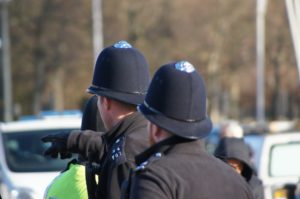Stress
Police officers facing extreme stress as austerity cuts bite
Police forces are on their ‘knees and facing extinction’ as officers face extreme stress, the Police Federation has warned.

More than three quarters (79%) of officers who responded to the Police Federation’s latest welfare survey said they had felt stress or anxiety in the last 12 months, with 94% of those saying these difficulties were caused or made worse by their job.
Almost half (43.9%) of respondents said they now view their job as very or extremely stressful, which is a larger number than the Federation’s last Demand, Capacity and Welfare Survey in 2016 (38.6%).
The survey also reveals that more than three quarters (76.1%) of frontline police officers regularly patrol on their own.
“When officers work alone, they are undoubtedly exposed to increased risk – for them, the public, not to mention the detrimental effect on their overall health and wellbeing,” said Federation Vice Chair, Che Donald.
“Forces are having their hands forced as they struggle to meet the increased demands placed on them, but this false economy or single-crewing merely creates the illusion of public safety. Quite simply this is not sustainable and officers are suffering.”
Last week, SHP reported that nearly half of SME workers quit jobs because of stress.
According to the report, violence towards officers is “still common place” with two thirds of respondents saying they have been the recipient of an unarmed physical attack at least once in the last 12 months.
And more than 6,000 officers said they had been deliberately spat upon in the last year.
Fatigue
 Around two thirds (64.4%) of respondents said they had found it difficult to carry out certain duties and asks at work, because they have been too tired, and three quarters (75.1%) said fatigue had interfered with their family or social life.
Around two thirds (64.4%) of respondents said they had found it difficult to carry out certain duties and asks at work, because they have been too tired, and three quarters (75.1%) said fatigue had interfered with their family or social life.
And almost every police officer said they had been exposed to at least one traumatic experience during their career, with 61.7% saying they had experienced at least one in the last 12 months.
One officer – PC Mick Johnson – was left suffering from post-traumatic stress disorder (PTSD), after he confronted a knifeman in Hartlepool in 2017.”I was off [work] for only three weeks, but later suffered from mood swings, short temper and lack of sleep,” said PC Johnson.
“I eventually sought help and was diagnosed with PTSD. I have received counselling for this and although the memory is still with me, I try not to let it affect me.”
SHP recently interviewed Andy Rudd from Construction firm Mace about what it’s like to suffer from PTSD.
Improve conditions
Mr Donald added the Federation is working with forces and other organisations to improve conditions and help officers who are struggling.
“I compel the Home Secretary who claims he ‘gets’ policing to read this report and act on it and when he is finished reading it, share it with the Treasury,” said the Federation Vice Chair.
“We need more money, more resources and more officers, so this public safety emergency can be addressed, and the pressure on officers eased before it is too late. The once revered British model of policing is currently on its knees and facing extinction, we need to act now to save it.”
There a number of programmes and initiatives available to police officers, who are struggling with stress or anxiety. The mental health charity Mind runs the Blue Light programme, which provides support for staff and volunteers across all the emergency services.
“It’s worrying but not surprising to see such high levels of poor mental health among police officers,” said Programme Manager, Mahbu Rahman.
“This [Police Federation] data reflects our own research which found stress and mental health problems such as anxiety, depression and post-traumatic stress disorder (PTSD) were very common among staff and volunteers from across police, fire, ambulance and search and rescue services.”
Responding to the report, Police Minister Nick Hurd said the Government takes the wellbeing of police officers and staff “very seriously”.
“The Home Secretary and I have been crystal clear that policing’s greatest asset is its people, and we are determined to ensure that forces have the support and resources they need to protect the public,” said Mr Hurd.
The Police Federation’s latest Demand, Capacity and Welfare Survey is available to read here.
Police officers facing extreme stress as austerity cuts bite
Police forces are on their 'knees and facing extinction' as officers face extreme stress, the Police Federation has warned.
Jamie Hailstone
SHP - Health and Safety News, Legislation, PPE, CPD and Resources
Related Topics
New flexible working legislation – what does it mean?
New online learning tool launched by HSE to help address work-related stress
Stress Awareness Week: Easy ways to incorporate stress relief into our workday


 Around two thirds (64.4%) of respondents said they had found it difficult to carry out certain duties and asks at work, because they have been too tired, and three quarters (75.1%) said fatigue had interfered with their family or social life.
Around two thirds (64.4%) of respondents said they had found it difficult to carry out certain duties and asks at work, because they have been too tired, and three quarters (75.1%) said fatigue had interfered with their family or social life.